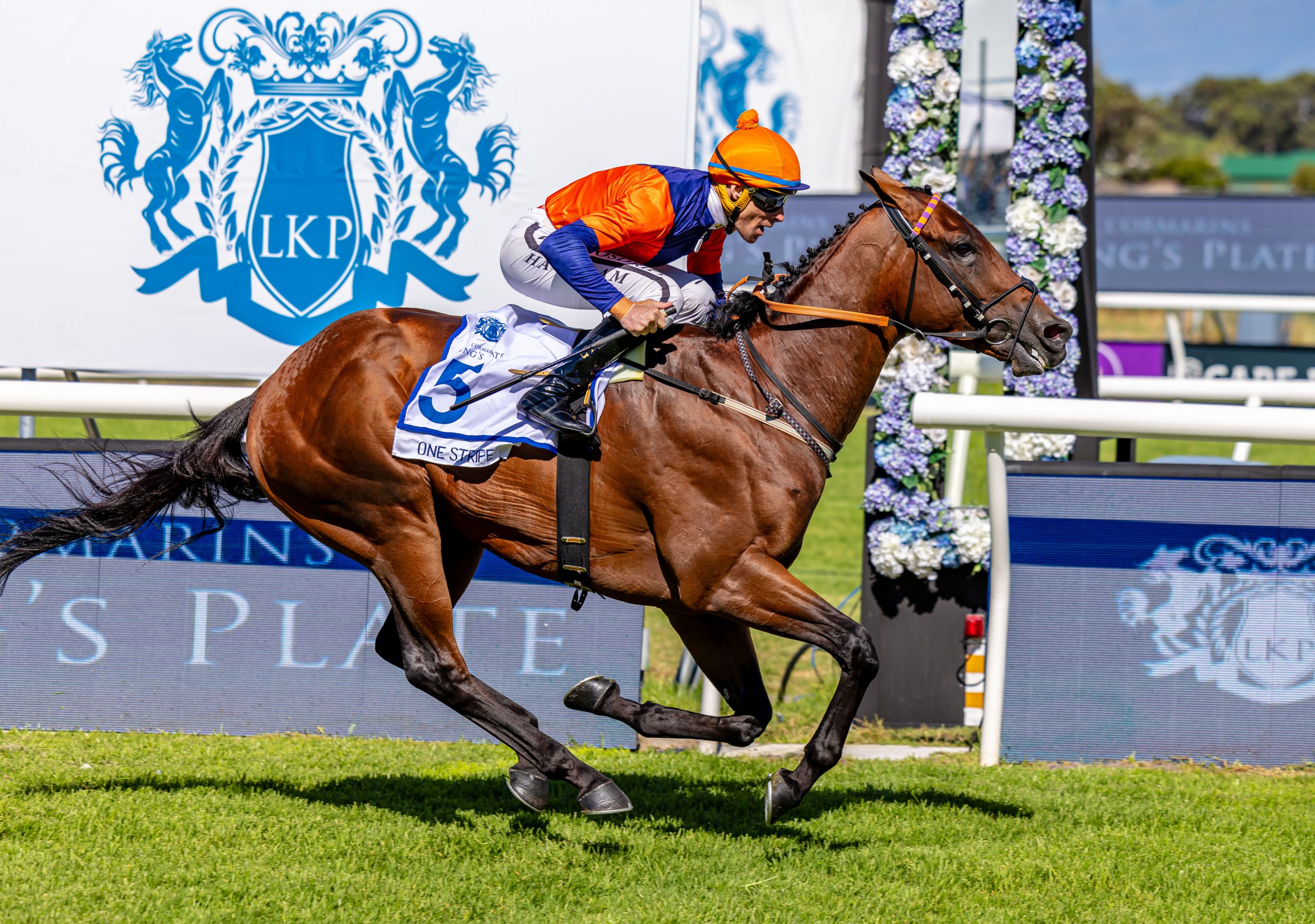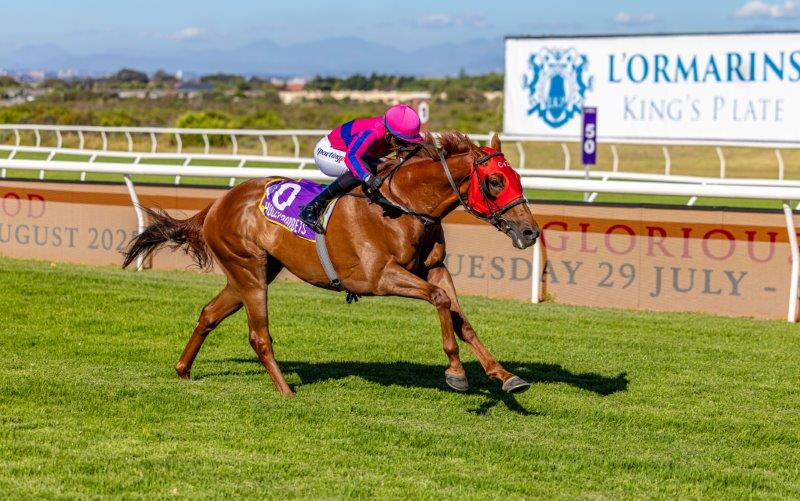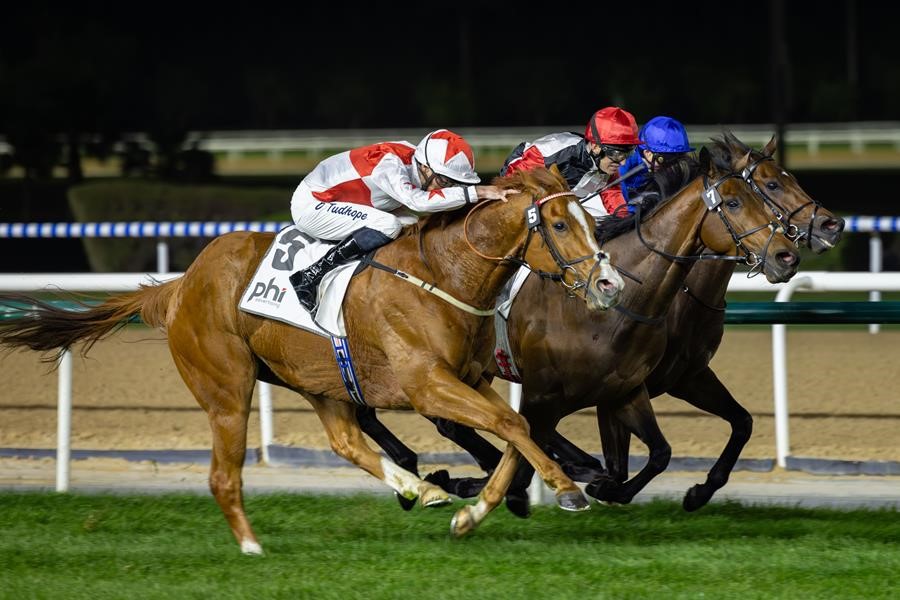While it remains one of the puzzles of a crazy season, the NHRA’s jockey travel restrictions could create a career of a lifetime opportunity for one of the young men, who, with respect, probably would not have cracked a Vodacom Durban July ride in an ordinary year.
While they are all talented riders, the likes of ‘Ant’ Mgudlwa, Tristan Godden and Serino Moodley are probably still pinching themselves that they have a chance for glory in Africa’s greatest horserace and a status opportunity and potential career elevation that an ordinary just over two minutes of racing could not deliver.
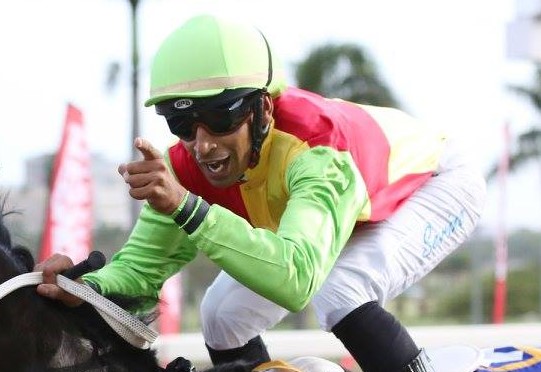
Serino Moodley rides Silvano’s Pride (Pic-Chase Liebenberg)
David Thiselton wrote some years ago that Paddy Wynne, won the July on the Gail Thompson-trained Jamaican Rumba in 1982 and is still stunned by the instant celebrity status he receives upon non-racing people learning he has won the big one.
When conversation turns to Wynne’s former profession, the ignorant are usually too polite to ask direct questions, but he said, “Somebody would then walk past and say ‘no but he won the July’ and they just can’t believe it. They ask how it felt and normally have a memory of the July I won such as their mother backing the winner because he was grey etc. The reaction wherever you go is just something else.”
Wynne also spoke of the weeks of physical, mental and tactical preparation which goes into the race and of how in the end the result almost seems pre-ordained.
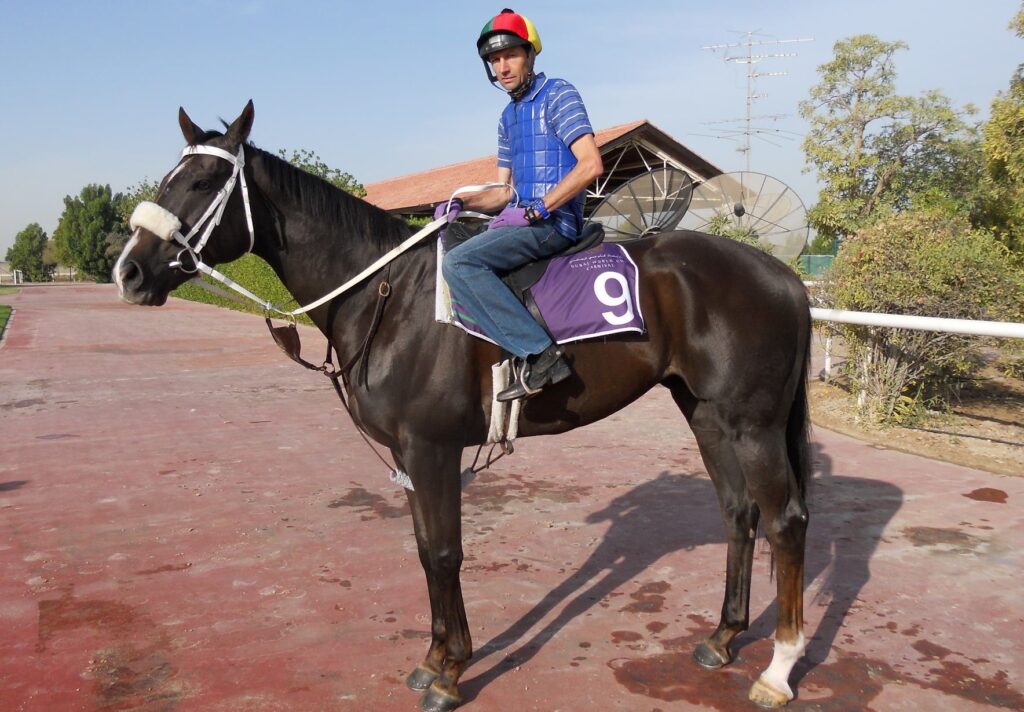
Wynne, pictured above in later years, started grabbing attention as a lightweight rider in the late 1970’s when given a chance by the great trainer Herman Brown Senior. Brown gave him his first July ride in 1979 on Bold Monarch, who had finished runner up two years earlier. Bold Monarch finished unplaced and Wynne had to wait three years for his next July ride.
He recalled a prerequisite for the Jamaican Rumba ride was the promise to make a full commitment six weeks before the race. The first jockey approached was in fact the great Michael “Muis” Roberts, but Roberts had many options at that stage and couldn’t commit.
Wynne was prepared to commit and immediately began a strict diet, as Jamaican Rumba was set to come in with a featherweight.
He rode the horse every single day in work until the race. Wynne said, “He just got stronger and stronger and I remember sharing this with newspaper man Jack Ramsay and he ended up tipping him.”

Jockey Billy Harvey knew Jamaican Rumba well, having won the Dick King Stakes on him as a three-year-old (today known as the Daily News 2000).
Jamaican Rumba was still a colt and had “a mind of his own”. Harvey told Wynne the grey would not be caught if turning for home in front, but if he was taken on in the running he would “throw it in.”
Wynne planned his pace-making strategy from a long way out. However, his biggest concern was a Johannesburg horse called St Tropez, a known front-runner.
He recalled the moment he heard the announcement of St Tropez’s scratching. The horse had apparently stood on something upon walking off the float on July day.
“I was sitting in the jockeys room and I couldn’t believe it. Now I didn’t have to worry about him. It was as if it was just meant to be. I had also won the first race of the day on an Alistair Gordon-trained horse, so my confidence was now up too. I weighed 46,5kg stripped down that day, but felt strong as I had dieted properly.”
Wynne took Jamaican Rumba, who carried 48kg, straight to the front from a draw of eleven in the 16 horse field and his carefully calculated plan unravelled perfectly. However, there was a lot more to it than he would admit, and this can be confirmed by current Summerveld trainer Frank Robinson.
Robinson was a schoolboy at the time and working for the Thompson yard was his first job in racing.
He said, “Paddy’s biggest asset was his judgement of pace. He was also a very loyal jockey and a fine judge of a horse on the training tracks, he knew when a horse was ready.”
Wynne slowed the pace up and recalled Felix Coetzee among others screaming at him to get on with it. Wynne said, “The more they shouted the more I slowed it up.”
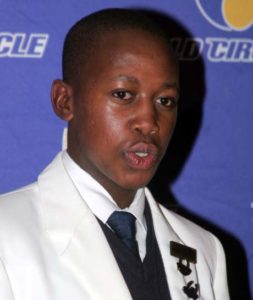
Athandiwe Mgudlwa rides Padre Pio
He is still mystified about why nobody took him on. He said, “Felix was boxed in so couldn’t get out but the others probably thought I was on a no hoper who would come back to them. But they should have realised the slow fractions. I recall even watching people walking on the sidewalk at the 1000m mark, that was how slow I was going.”
Wynne continued, “There is a particular spot at Greyville, between the 500m and 450m mark, and if you can go from there on a horse who still has plenty left they won’t catch you.”
Jamaican Rumba duly kept on finding and despite the nearest challenger Sweet Wonder famously attempting to bite him he crossed the line half-a-length clear.
Robinson recalled Thompson being a shrewd trainer, one who would lay a horse off for months with a target in mind and such had been the case with Jamaican Rumba, whose unplaced runs in both the Republic Day Handicap (today’s Betting World 1900) and Clairwood Champions Stakes (today’s Rising Sun Gold Challenge) in the build up ensured his feather weight.
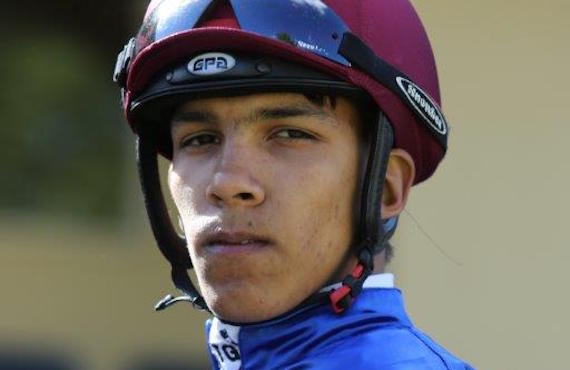
Outside chance on Capoeira Tristan Godden (photo: Gold Circle)
He also recalled Jamaican Rumba being owned by bookmaker Harold McLean Robertson, who would arrive at the yard for regular meetings to discuss the July. Robinson learnt at these meetings they were pouring money on the horse. However, the victory still came as a surprise to him and he recalled it to be a “surreal” moment.
The infamous “dream lady” supposedly made her first public appearance the following week.
This mystery lady had apparently been tipping the July winner year after year based on her dreams and the story, fact or fiction, reached its zenith when an old lady was apparently sighted walking into a Tattersalls with a suitcase in order to collect her Jamaican Rumba July winnings.






